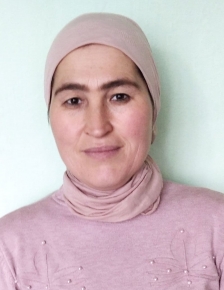Script of Workshop 5 Effective Question and Answer
Workshop title: Effective Question and Answer
Workshop description: At the end of the session participants will be able to understand how different types of questions are used in teacher talk and practice basic question forms and answers with students
|
Sections /Trainer |
Time |
Instructions |
Materials |
Note |
|
|
Effective Question and Answer |
|||||
|
Warm up
Trainer 1: |
9:00-9:25 |
Begin the session with the activity: “Guess the question” Trainer writes some answers on the board, participants should guess what the question is: e.g. -……? - In Asaka -……? - Classic -…..? - Not, actually. He is a driver.
Possible questions:
|
White board |
|
|
|
Inform learners of objectives
Trainer 2 |
9:25-9:30 |
Tell the participants that they are going to learn about different types of questions including display and referential questions and practice making a good question and answer talk. |
PPPT or a boarding card with written objectives |
|
|
|
Stimulate recall of prior learning
Trainer 1 |
9:30- 9: 45 |
Make an elicitation on types of questions they know. Use the following Graphic organizer. In plenary, Brainstorm on types of questions.
|
A white board |
|
|
|
Present the content
Trainer 2 |
9:45- 10:10
|
- Tell participants about two more types of questions: display and referential. Distribute Handout 1 with the article about “Display Questions vs Referential Questions” by Hyunsun Chung , GMU and ask them to read the article with peers turn by turn. (It is a two-page article, which took me 6 minutes to read it in detail. It may take PP about 12-15 minutes, when they read it in turns) When they have finished reading, check their understanding by Response Cards. Give each pair a card with True /False. Read aloud some statements about Referential and Display questions.( Handout 2) e.g. 1. Display questions are asked by the teacher in order to develop critical thinking. (False) 2. Referential questions have a real communicative purpose. (True)
|
Handouts |
|
|
|
Guide learning
Trainer 1 |
10:10-10:30
|
Group work. Put the passage in order. -First create groups by using shapes: circles, squares, triangles,.. Give each group a passage (with steps of an activity which teaches questions) which is cut into three parts. In groups PP will read the pieces of passage and put it in order.
After that, trainer asks following question: What kind of questions is the teacher going to teach?
|
Pieces of passage |
|
|
|
Experimental activity 1
Trainer 2 |
10:30-11:00 |
Work in groups of three. Ask PP to count to three. Ones- Group 1, twos- Group 2, threes- Group 3. Give each group one theme from the Textbook Teens 8 and ask them to create a Question & Answer between a teacher and a student. Provide an example. PP can use samples which are given in the article by Hyunsun Chung. |
Textbook pages |
|
|
|
Explanation ICQs Trainer 1
|
11:00: 11:20
Lunch time: 11:20-11: 50 |
Mini-lecture on the importance of ICQs. Present some ICQs. Ask whether they are correct or not.
Provide examples for a good ICQ. Tell them to avoid the ICQs like: Do you understand? And Is it clear?
PP work in pairs to make up correct ICQs for their lessons. |
|
|
|
|
Elicit performance practice
Trainer 2 |
11:50- 12: 20
|
Work in groups which was created in the previous activities. PP will create an Anchor Chart with correct ICQs. When they finish they will display on the walls.
|
Boarding cards |
|
|
|
Provide feedback
Both trainers facilitate. |
12:20-12:40 |
Organize a Gallery Walk and they will give feedback on each other’s anchor charts.
|
Sticky notes |
|
|
|
Assess performance
|
12:40-13: 10
|
Work in small groups. Give each small group a case where a teacher should use a question. Ask them to provide appropriate type of question. e.g. Case 1: While monitoring, the teacher notices that one of the students cannot join the teamwork. Write the question for the teacher to ask that student. Case 2; The teacher notices that one of the students could not understand the instruction for an activity. Write a question for the teacher. Case 3: Teacher wants to check SS understanding of a text about Teenage jobs. What kind of questions will the teacher use? Give an example. Case 4: Teacher wants to create a questionnaire about the SS preferences about the types of music. What type of questions should the teacher use? Give an example. Case 5: The teacher gives an instruction about how to complete the table with 3 columns. Create a question to check whether SS understand what they will do.
|
Cards |
|
|
|
Assign task for further development |
13:10-13:20 |
Tell participant
|
|
Activity tracker is provided in previous sessions. |
|
Saodat Erkaboyeva

